The weekend is the time for a break from the daily routine and then it happens to many of us that we simply look out the garden with our morning coffee. We are aware of the comings and goings of birds and watch the tits, sparrows, finches and robins darting from branch to branch. One of the best ways to enjoy wildlife from the comfort of your own home is feeding birds in the backyard. You will be amazed at the variety of birds that will come to your feeding station throughout the year.
Is it forbidden to feed birds in your own garden?
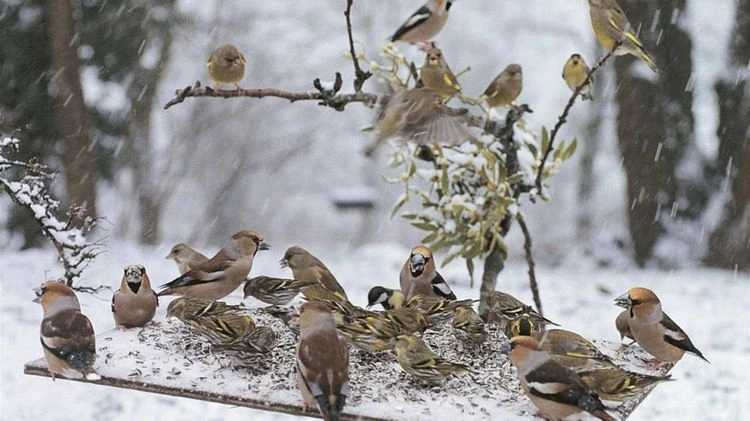
Generally, feeding birds is not prohibited. However, in many cities and communities it is not allowed to feed pigeons. Experts disagree on whether backyard bird feeding will significantly help bird populations. But feeding can certainly help individual birds in the neighborhood. However, be aware that feeding them the wrong food can lead to nutritional problems. This can make birds sick and cause premature or painful death.
When should you feed the birds?
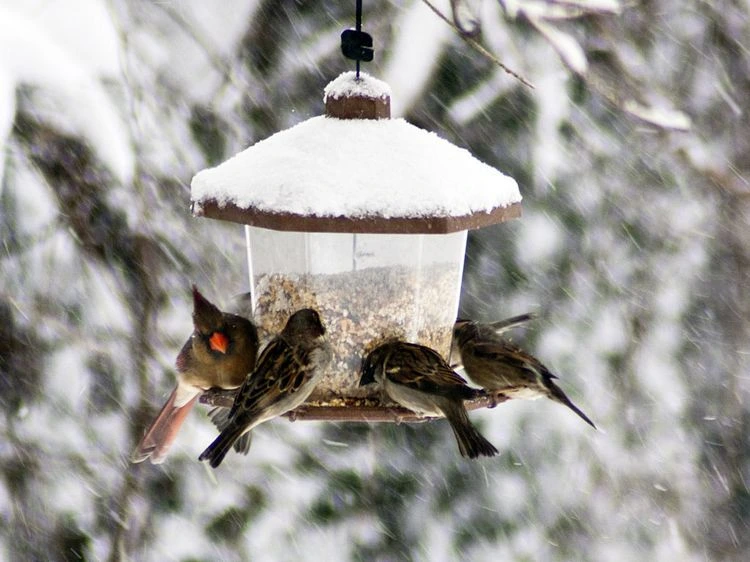
It is not necessary to feed the birds all year round. Bird feeding is most helpful during the periods when the birds need the most energy. This happens during extreme temperatures, during bird migration, and in late winter or early spring when natural seed sources are exhausted.
Also read: How to Make a Bird Feeder: Upcycling Ideas for the Garden or Balcony
Feeding birds properly in winter
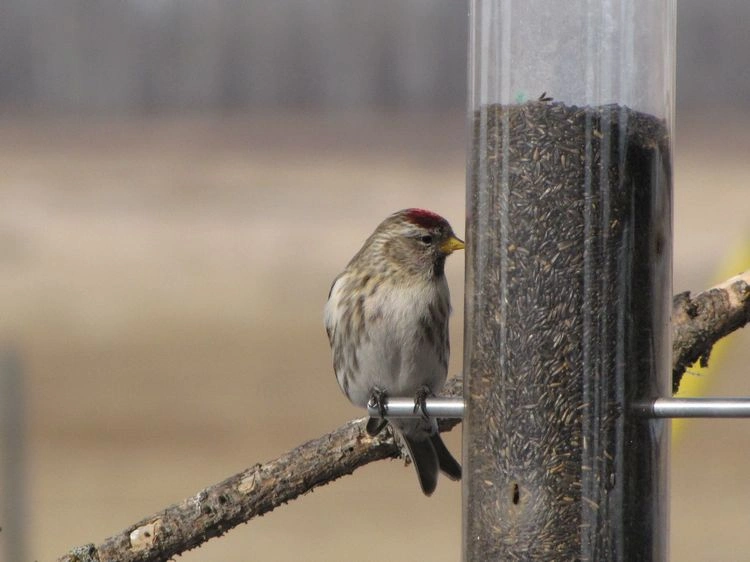
Provide food and water regularly at this time of year. If there is a storm, feed the birds in the garden twice a day if possible: in the morning and in the early afternoon. When there is frost and snow, a particularly large number of birds will accept the offer.
Birds need high-energy food during the cold winter weather to keep their fat reserves up and get them through the chilly nights.
Once you’ve established a feeding routine, don’t try to change it as the birds will get used to it and plan their visits to the garden accordingly.
Which birdseed should you offer in winter?
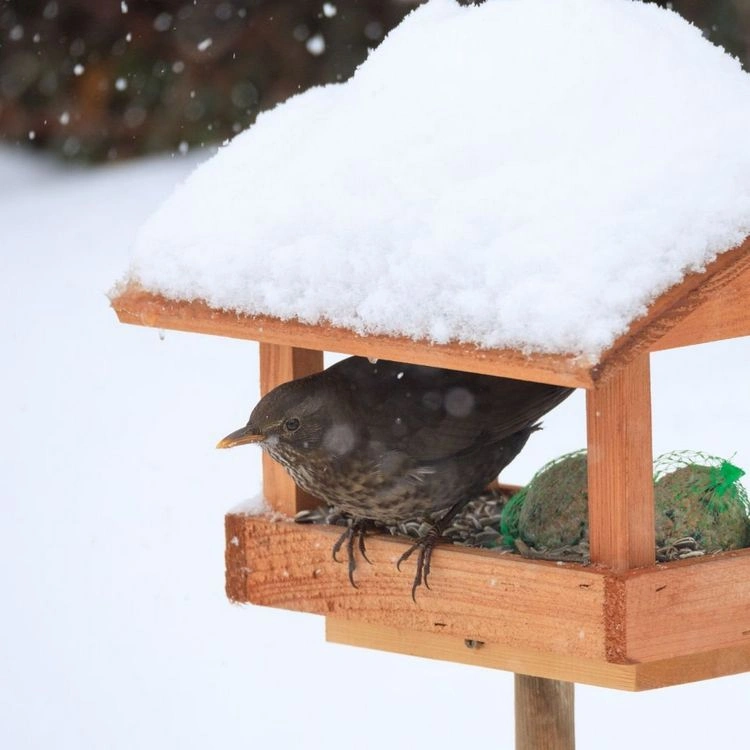
- Black Sunflower Seeds: They are among the most popular seeds among a wide variety of birds. If you only put one type of food in your feeder, this is the right choice.
- Black Oil Sunflower Seeds: The difference between sunflower seeds and black oil sunflower seeds is that the latter are larger and contain more calories per seed, making them a highly nutritious feed.
- Mixed Seeds: They’re a great option and an easy way to feed birds in the winter.
- Fruit: Apples and pears make a wonderful addition to the bird feeder. Heavily bruised fruit is also well received.
- Peanut Butter: It is a high calorie food loved by many different birds. Just make sure you’re not offering conventional peanut butter that has salt and sugar in it.
- Millet: It is a particular favorite of sparrows.
- Peanuts: hazelnuts, peanuts, walnuts, poppy seeds and pumpkin seeds.
- Niger Seeds: They are the favorite treat of goldfinches. Use a tube feeder with tiny holes to keep the seeds from falling out and welcome these colorful birds to your garden.
- Broken Corn: Choose medium-sized broken corn, as finer ones tend to mash and coarser corn is too big for small-beaked birds.
Foods to avoid when feeding birds
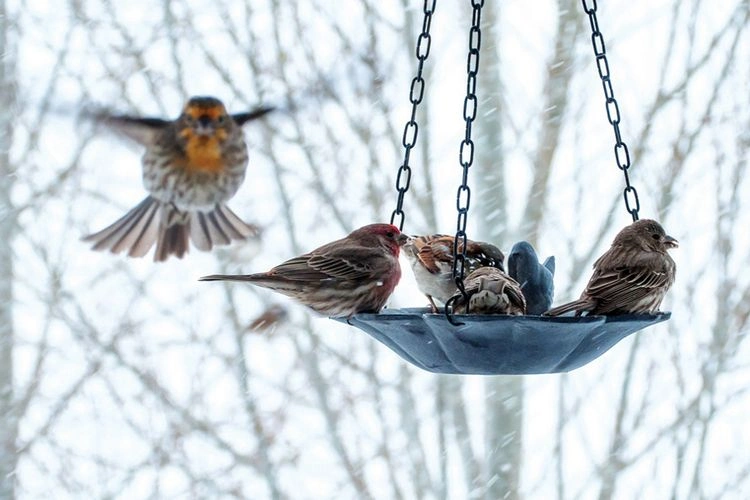
While some foods are safe for birds, others we eat can be potentially dangerous or even deadly. That’s why you need to know which foods to avoid. We take a look at what foods you shouldn’t feed birds to keep your feathered friends safe and healthy.
- Salty food: This means that you don’t feed birds salty processed foods such as: bacon, pizza or chips, or homemade food that has salt added during cooking or at the table.
- White Bread: When birds gorge themselves on white bread, they stop eating their natural diet, which is nutritious. The birds can then become nutrient deficient and also choke on bread crumbs.
- Avocado: It contains a fungicide called persin, which isn’t harmful to humans, but it can cause heart and lung problems in birds, which can even prove fatal.
- Milk: Birds are lactose intolerant, so milk and other dairy products should be completely eliminated from the diet.
- Fruit pits and seeds: You may be surprised to know that many fruit pits and seeds actually contain cyanide. While this doesn’t make them dangerous to humans, they can be harmful or even fatal to the birds, which are much smaller.
- Chocolate and Candy: Chocolate contains both dairy and caffeine, and even very small amounts can kill birds.
- Foods that pose a choking hazard: There are many small, hard foods that pose a choking hazard to birds: whole peanuts, uncooked beans, pieces of bread, grated coconut, and more.
- Spoiled or Moldy Feed: This is true even for specially formulated birdseed that is no longer fresh or showing signs of infestation.
Are Eggshells Good for Birds?
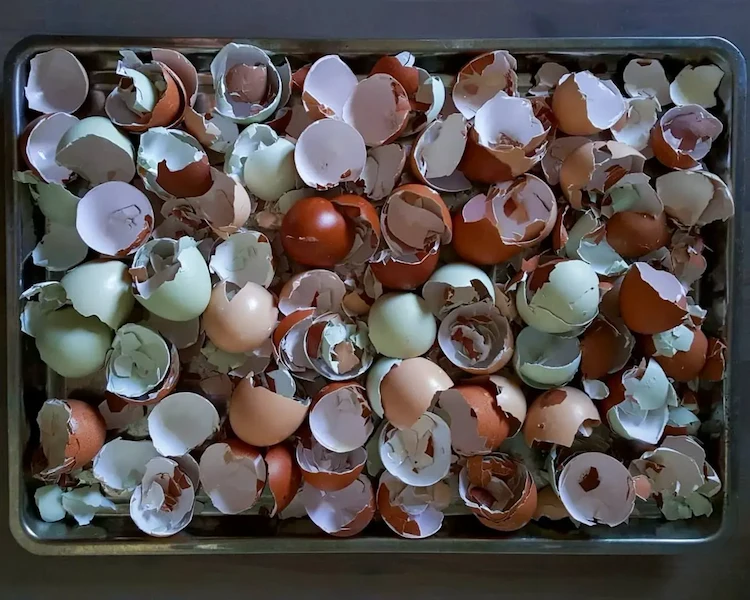
Eggshells are good for birds. They are high in calcium, a mineral that many birds lack. Calcium is especially important for female birds, who need the calcium to form the shells for their eggs. However, it can be difficult to find enough in nature.
This is where the eggshells come in: simply rinse the eggshells and then bake them in the oven at 220°C for 10 minutes. Once cool, mash them up and add them to the bird menu.
